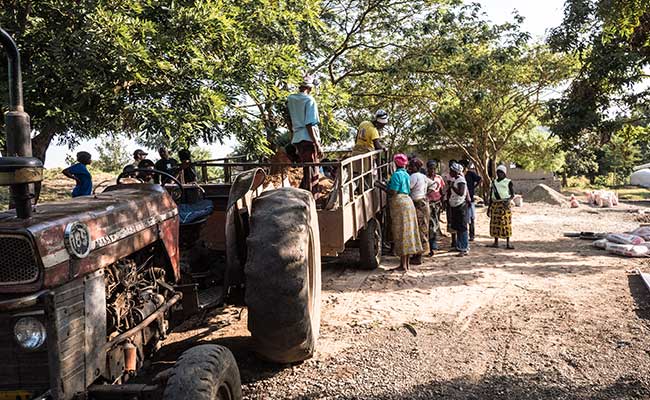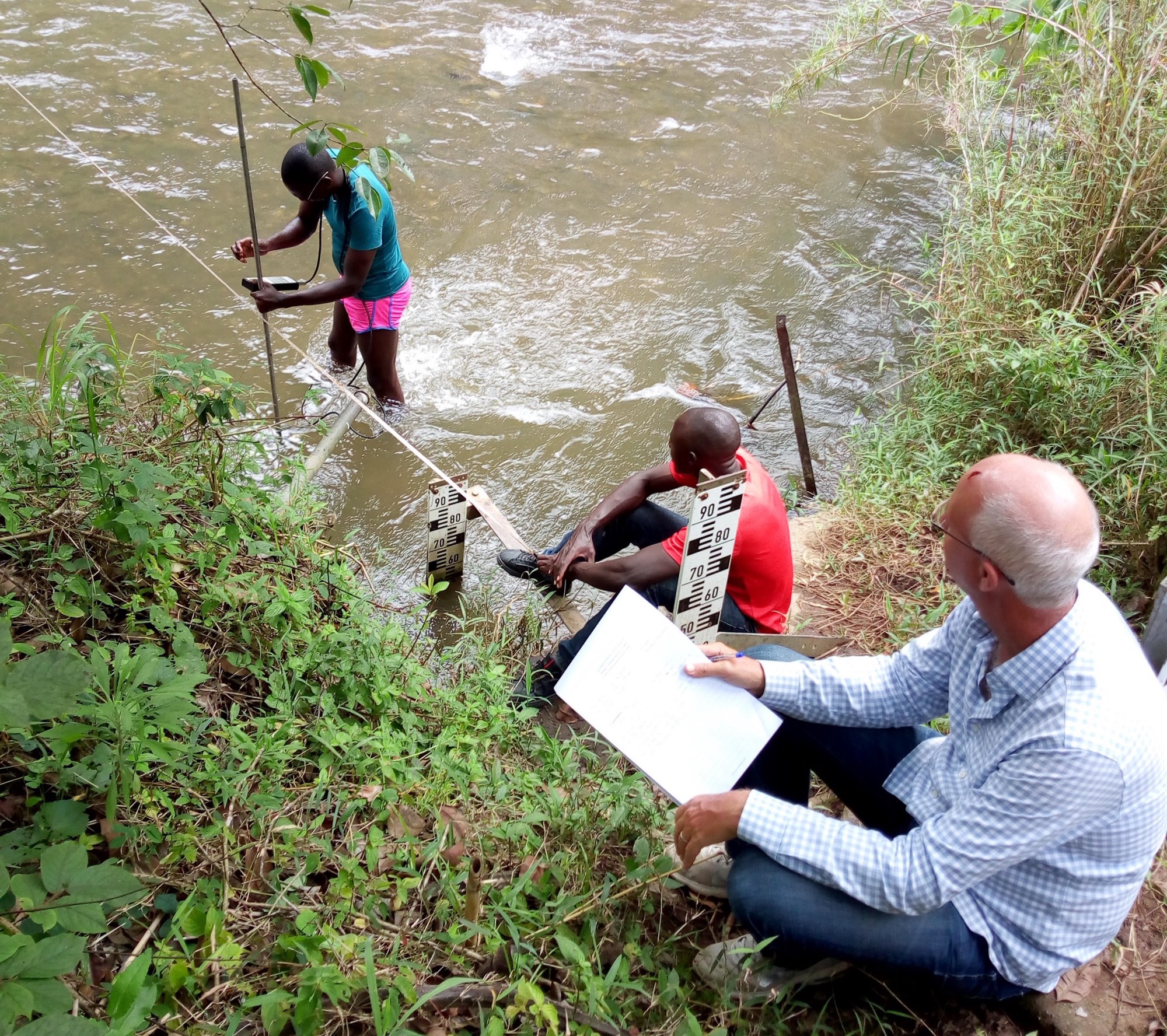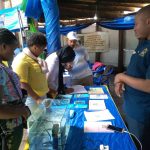Water User’s Capacity Development Plan Underway
A team of experts involved with Integrated Water Resources Management (IWRM) met in Dodoma on May 29 and 30, 2019, to develop a Capacity Development Plan (CDP) for Water User’s Associations (WUAs) in the Wami/Ruvu and Rufiji water basins. The CDP will support management, development and governance of water resources in both basins, strengthening the technical and financial capacity of WUA leaders and improving collaboration, coordination and communication between basin water boards, Local Government Authorities (LGA) and other stakeholders involved in water resources
management.
WUAs are mandated by the Government of Tanzania through the Water Resources Management Act No. 11 of 2009 to provide local level management of water resources, prepare water utilization plans, and protect and conserve water sources and catchment areas through interventions such as afforestation activities, soil erosion control, and wetland restoration.
The team of experts—composed of hydrologists, water engineers as well as
Community Development Officers (CDOs)—identified and analysed key stakeholder
groups that should be targeted for capacity building. The team identified current capacity
gaps of WUAs including lack of mechanism for collaboration among stakeholders and the
opportunity for Basin Water Board (BWBs) to improve coordination and oversight of
WUAs to fulfill their responsibilities.
The meeting concluded with identification of training themes and specific competencies
required for WUAs to carry out various tasks (technical, managerial and process-
oriented competencies) in managing water resources at the local level. USAID/WARIDI’s
support in developing the Capacity Development Plan for Water Users Associations will
be completed over the next several months and provide training and support to 250
WUA leaders and the Wami/Ruvu and Rufiji BWBs.
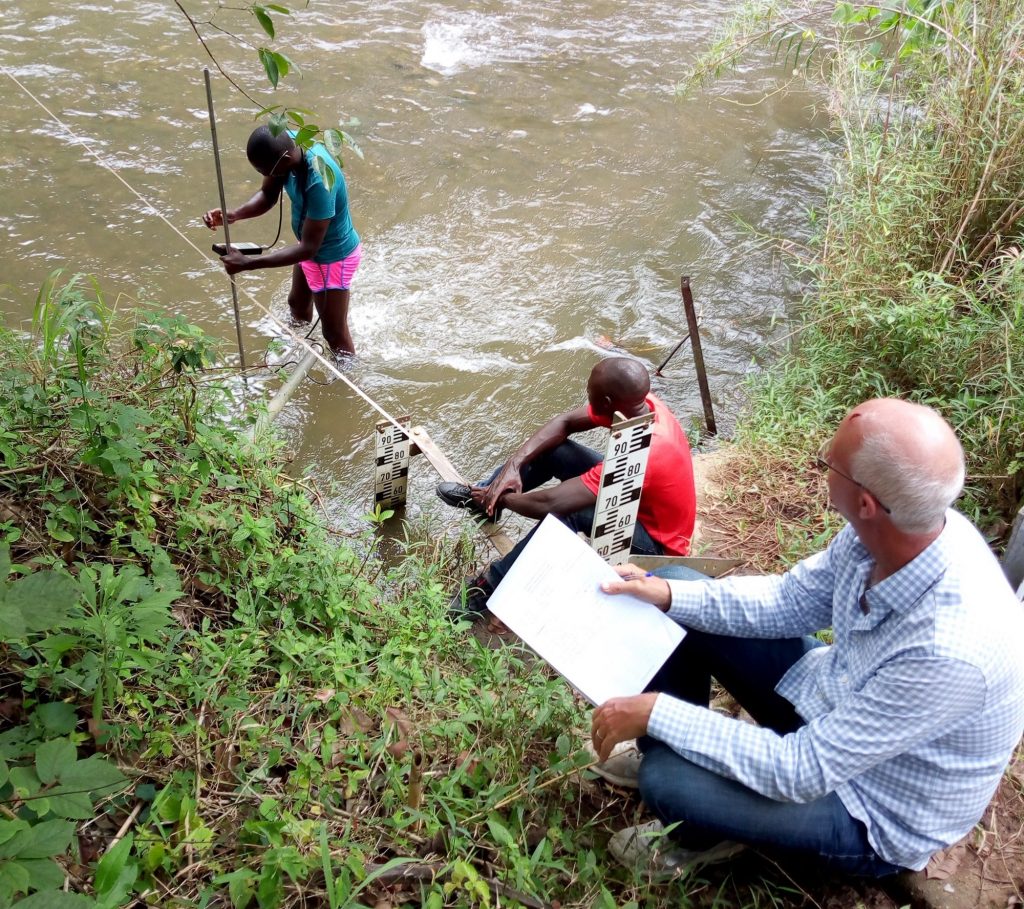
Eusebio: “Knowledge, Use of Improved Seeds has Increased Tomato Yield and
Revenue”
Eusebio Nguvila (35) lives at Kidamali Village located 45 kilometers west of Iringa Town,
along the Iringa–Ruaha National Park road. He has been growing tomatoes for 16 years
under both rainfed and irrigated production. During those years, his tomato yield had
not been a promising one. He had little knowledge of the use of improved seeds and
other farm inputs, which would substantially increase his tomato yield and improve his
income.
In 2018, Eusebio was one of the 36 farmers from Kilolo and Iringa District Councils who
were supported by WARIDI to take part in a three-day learning visit to Zonal Nane
Nane Agricultural Exhibitions in Mbeya. “It was this opportunity that changed my
economic life. I learned about improved seeds and other farm inputs and eventually I
now practice and teach my community on the acquired new knowledge,” says Eusebio.
“When I came back from Nane Nane, I immediately started preparing the farm yard
manure and soils and improving the pit for decomposing the pig slurries at my
homestead. Within two weeks I had a beautiful sack garden and several raised beds
planted with amaranth, Chinese cabbage and pumpkins. I also made an Orange Fleshed
Sweet Potato (OFSP) multiplication unit and planted maize and sunflower seeds I bought
at the exhibitions.
My neighbors became my vegetable market, while the Ruaha National
Park staff started making vegetable orders and picking the vegetables at the roadside
where my wife was vending.”
“I used to harvest 14 to 15 tons peracre when I planted local seed varieties and reproduced seeds which I extracted from my farmed tomatoes. The plants used to be
very vulnerable to diseases and gave fruits of poor quality. This year is quite different, and I am expecting a bumper harvest of 35 tons.” When asked about the benefits of
having kitchen gardens, his response was clear: “I sell vegetables 3 times a week at TZS
2,400 to 3,600/= and earn up TZS 10,800/= in total. My market is growing, and neighbors are frequently coming to learn. Thanks to USAID WARIDI, and thanks to every staff member of this project.”
Eusebio is one of WARIDI’s farmer champions because he is very aware of what was
important to teach his fellow farmers as lessons from Nane Nane. “I first started to
teach my neighbors on good agricultural practices. Those applying the new skills have
significantly improved the yield [and] increased income; hence, changing their income
status to the better.”
Better Water Data to Support Socio-Economic Development in Tanzania
How do you secure sustainable and increased access to water and sanitation in the face of stressed water resources? If you had to choose between hydro-electricity or food security through irrigation, what would you do? And what about environmental integrity in the riparian zone with its rich wildlife and flora? Can we find a compromise and manage our river systems in a coordinated way that achieves most of our objectives? And do we accept the inevitable tradeoffs? We can only answer these questions if we have
good water data.
USAID WARIDI is working with the Wami/Ruvu and Rufiji BWBs to improve processes to collect high-quality water data that is used to support decision-making on irrigation planning, hydro-electricity development, and other water-dependent sectors.
Accurate information on the quality and quantity of the water resources of the
Wami/Ruvu and Rufiji basins is required as a basis for socio-economic development in
the two basins and beyond. The Stiegler’s Gorge project—a proposed 2,100-Megawatt
hydro-electricity plant on the Lower Rufiji—and the large potential irrigation schemes
along the Kilombero are just two examples of important water-related development
projects that may impact the socio-economic development trajectory of the entire
nation. The two basins also contain important environmental value in the Ruaha, Kitulo,
Mikumi, Selous, and Udzungwa national parks, while providing water supply for fast
growing urban areas such as Dar es Salaam and Dodoma.
Pressure on water resources within the Wami/Ruvu and Rufiji basins is increasing to
unprecedented levels because of population growth, demand for agricultural land, and
commercial development, while climate change is altering the rainfall pattern and
availability of water resources.
It is evident that consensual management of basin water resources—through an IWRM
process and relying on the permitting tools of the respective BWBs—only works in
practice when based on facts and a solid understanding of the hydrological regime. This,
in turn, requires good water data.
Yet the collection of reliable water data is difficult and has proved expensive, and
generally beyond the capacity of the hydrometric agencies—in terms of budgets and
human resources.
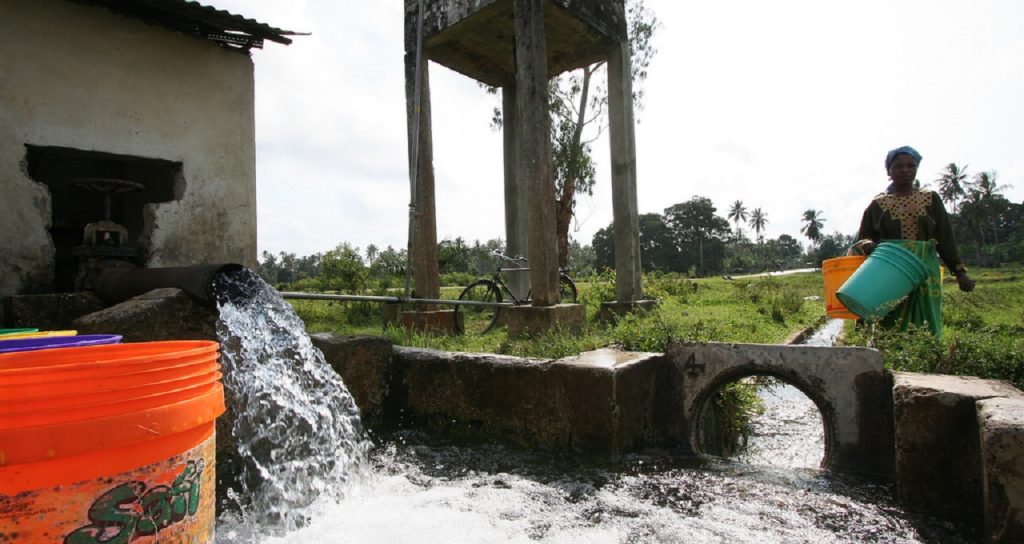
WARIDI has strengthened the capacity of the Wami/Ruvu and Rufiji BWBs to
provide high quality water data through:
• Installation of modern hydrometric instruments that facilitate automatic data
processing—meaning that time-consuming and error-prone manual data processing
and quality control is no longer needed—and upgrading more than 25 stations;
• Introduction of the AQUARIUS software for time-series data management, which
provides a broad set of tools for effective data management, quality control, and
dissemination;
• Development of accurate and defensible rating curves with a robust conceptual
methodology that requires far less field data which has substantially increased the
accuracy of the existing water data, as well as the confidence we have in these data. It
also made it possible to recover streamflow time series for some stations with very
few field measurements;
• Development of a strategic field measurement program that has substantially reduced
the number of field visits required to obtain high-quality water data; and
• Formal and hands-on training of the Wami/Ruvu and Rufiji Basins hydrologists on
hydrological data collection, validation, and management.
The absence of a sound understanding of the hydrological processes because of
inaccurate, insufficient, or no data at all typically leads to overly conservative decisions
and lost potential, and quite possibly to resource conflicts. Now that the data scarcity
constraint is being addressed in the Wami/Ruvu and Rufiji basins, inadequate knowledge
of the quality and quantity of the available water resources is one fewer barrier to
sustainable management for the benefit of the people in the basins and beyond.
Wami/Ruvu Basin Stakeholders Meet to Address Water Management Challenges
Private sector engagement in conserving water sources is among the key approaches
Wami/Ruvu Basin stakeholders are working on to address mismanagement of water
resources.
During the Wami/Ruvu Multi-stakeholders’ meeting held in Bagamoyo in May 2019,
stakeholders discussed management of water conflicts, increasing efficiency of water use,
enhancement of data on water resources, and revenue models to support sustainable
water resources management. A key observation by participants was the fact that
mismanagement of water resources was being worsened by climate change, affecting
availability of water resources. It was emphasized that without water, industrialization is
almost impossible. Currently, Tanzania is embarking on industrialization towards
achieving the middle-income economy. “…Industries help job creation especially for
youth and pay taxes, so it is important to ensure that water sources are well managed,”
says Simon Ngonyani, Wami/Ruvu Basin Water Officer.
After two days of intensive discussions on water resources and its management,
participants agreed they would form working groups and follow-up on:
• Water Use, Registration, Permits and Fee Collection
• Water Resources, Climate Change, Research, Data and Information Management
• Awareness, Protection, Enforcement and Conflict Resolution
• Projects, Coordination and Collaboration for Water Use Efficiency
Closing the meeting, Wami/Ruvu Basin Water Board Chairperson, Hamza Sadick,
thanked USAID/WARIDI for the financial support provided to enable such an important
learning event to happen.
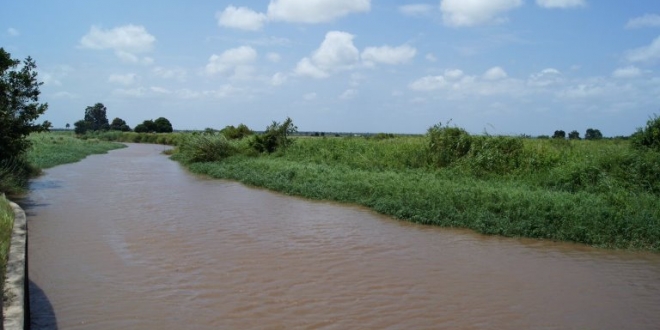
U.S. Ambassador Visits Mgama Water Scheme
At Mgama Village, in Iringa District, USAID/WARIDI installed new water supply
infrastructures and repaired old ones, providing access to safe and clean water for more
than 5,900 people.
On July 10, 2019, the acting U.S. Ambassador to Tanzania, Dr. Imni Patterson, visited
Mgama Village. She had interactive talks with village leadership including Community
Owned Water Supply Organization (COWSO) members and later visited water storage facilities constructed by WARIDI. The villagers expressed their appreciation for the WARIDI water project enabled them to get access to reliable, safe and clean water services. They also thanked the U.S. Government for the support to Tanzanians. On her
part, the U.S. Ambassador commended Regional, District, and village leadership and the
community for successful implementation of the project.
With higher seasonal rainfall variation in and around Mgama scheme, the availability and
quality of water resources is becoming more important. Tanzania is going to be among
water-stressed countries, hence the need for good management of water resources. The
Ambassador called for everyone to work on other ways of conserving water, including
rain water harvesting. The construction of a new 90m3
storage tank has significantly increased water storage and reduced the time used to fill the existing water tank from 3 days to just 5 hours. The works at Mgama scheme included cleaning, rehabilitating and repairing of the intake, construction and fencing of a new storage tank, rehabilitation of all 12 existing and construction of three new domestic water points, all of which have been metered.
WARIDI also extended and rehabilitated a pipe network of 13,502m (10,512m being
new). In coordination with government water quality testing labs, WARIDI installed a
water treatment unit located on the storage tank cover slab.
During construction, pipes and fittings were stored and managed on-site by the
community. The community also provided labor for trench excavation, pipe laying and
backfilling with a total community contribution of TZS 46,970,000 (TZS 43,220,000 in
labor and TZS 3,750,000 in cash). COWSO leadership were trained on revenue
collection, governance, and scheme maintenance and operations to ensure sustainable
operations.
The acting US Ambassador to Tanzania, Dr. Imni Patterson, receiving a gift handed
to her by women at Mgama village she visited water storage tank constructed by
WARIDI.
Young Engineers Praise USAID/WARIDI Internship Program
USAID/WARIDI implements an internship program that provides opportunities for
recent university graduate engineers to practice their technical skills acquired in college
and do important work. Under WARIDI’s internship program, recognized by the
Engineers Registration Board (ERB), the junior engineers work under supervision of
experienced WARIDI engineers in the implementation of water projects in Morogoro
and Iringa regions.
Irene Lemelo (26) is among the young women engineers who started as an intern and now has been hired by WARIDI. She graduated in 2016 with a BSc Civil Engineering (Highway and Water Engineering) degree from St. Augustine University. As a site intern
engineer, she supervised Kilolo and Hembeti water projects. “As a young female intern, I encountered difficulties leading men. They seemed not to trust me. Luckily, I had support from WARIDI team which places gender equality at the center.”
“My internship program was a great experience indeed. It enabled me to acquire practical skills on what I learnt as a student at college. Now I possess hands-on experience on how to do site works and to deal with the community.”
“I never knew I could do water works, but today here I am. Designing, engaging the
community, communications, to mention but a few responsibilities. I am very thankful to
WARIDI for giving [us] the chance to practice our skills. My message to other young
female graduates is: always be confident, don’t feel shy to ask, give a try to anything that
comes along your way.”
About WARIDI
The Water Resources Integration Development Initiative (WARIDI) is a U.S. Agency for
International Development (USAID) funded five-year program which aims to improve
health, water resources management, agriculture practices and climate change adaptation
in the Wami/Ruvu and Rufiji river basins of Tanzania. Photos from WARIDI are available
for download. Please provide credit to USAID WARIDI.
